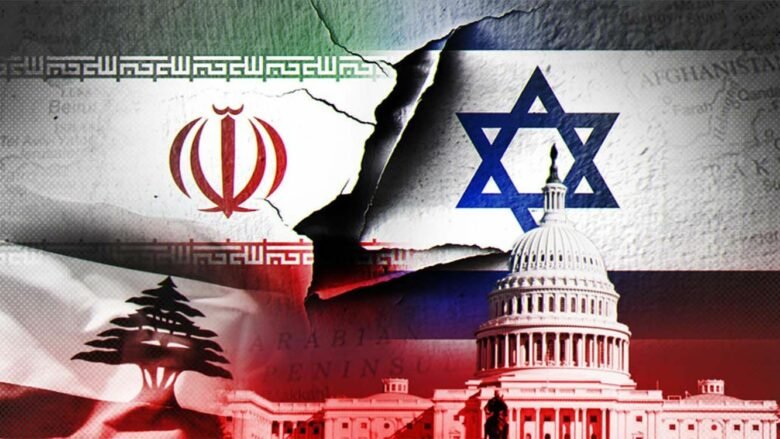For now, the fighting between Israel and Iran appears confined to the two nations. At the United Nations and elsewhere, there have been varying opinions on the cause of the war. But what if these pleas fall on deaf ears? What if the fighting escalates and expands? Here are just a few possible, worst-case scenarios.
1. America Gets Involved in the Conflict
Despite U.S. denials, Iran clearly believes that American forces approved and at least tacitly supported Israel’s attacks. Iran could strike American targets across the Middle East – such as special forces camps in Iraq, military bases in the Persian Gulf, and diplomatic missions in the region. Iran’s proxy forces – Hamas and Hezbollah – may be significantly weakened, but its supporting militias in Iraq remain armed and intact.
The U.S. feared such an attack and has withdrawn some of its personnel. In public statements, the U.S. has strongly warned Iran about the consequences of any attack on American targets, as reported by the BBC. What would happen if an American citizen were killed, for example, in Tel Aviv or elsewhere?
U.S. President Donald Trump might feel compelled to act. Israeli Prime Minister Benjamin Netanyahu has long been accused of seeking to draw the U.S. into helping defeat Iran. Military analysts say that only the U.S. has the bombers and bombs capable of penetrating Iran’s deepest nuclear targets, particularly the Fordow plant.
Trump had promised his MAGA supporters that he would not start any “forever wars” in the Middle East. However, many Republicans also support both the Israeli government and the idea that now is the time to seek regime change in Tehran. Nevertheless, if America were to become an active participant in the war, this would represent a major escalation with long-term and potentially devastating consequences.
2. Gulf Countries Get Involved in the Conflict
If Iran fails to damage well-defended military and other targets in Israel, it might target easier objectives in the Persian Gulf, especially those countries that Iran believes have aided and supported its enemies over the years.
There are many energy and infrastructure facilities in the region. Recall that Iran was accused of attacking Saudi Arabian oil fields in 2019, and its Houthi proxies struck targets in the United Arab Emirates in 2022. Since then, there has been a kind of reconciliation between Iran and some countries in the region, Telegrafi reports.
But these countries host American air bases. Some of them – covertly – helped defend Israel from Iranian missile attacks last year. If the Gulf were attacked, it too might seek American fighter jets to come to its defense, just as they have for Israel.
3. Israel Fails to Destroy Iran’s Nuclear Capacity
What if the Israeli attack fails? What if Iran’s nuclear facilities are too deep, too well-protected? What if the 400 kilograms of 60 percent enriched uranium – nuclear fuel that is just one step away from weaponization, enough for about ten bombs – are not destroyed? It is thought that they might be hidden deep in secret mines. Israel may have killed some nuclear scientists, but no bomb can destroy Iran’s knowledge and experience.
What if the Israeli attack convinces the Iranian leadership that the only way to deter further attacks is to rush towards nuclear capability as quickly as possible? What if the new military leaders around the table are more reckless and less cautious than their now-killed predecessors? At the very least, this could force Israel to undertake other attacks, risking drawing the region into an unending cycle of strikes and counter-strikes. Israelis have a harsh phrase for this strategy; they call it “mowing the lawn.”
4. Global Economic Shock
The price of oil is already rising. What if Iran tries to close the Strait of Hormuz, further limiting oil movement? What if – on the other side of the Arabian Peninsula – the Houthis in Yemen redouble their efforts to attack ships in the Red Sea? They are Iran’s last remaining, so-called proxy, with a history of unpredictability and a high appetite for risk.
Many countries worldwide are already facing a cost-of-living crisis. Rising oil prices would add inflation on top of a global economic system already bending under the weight of Trump’s trade war. And let’s not forget, the man who benefits most from rising oil prices is Russian President Vladimir Putin, who would suddenly see billions of dollars pour into the Kremlin’s coffers to finance his war against Ukraine.
5. The Fall of the Iranian Regime Leaves a Vacuum
What if Israel achieves its long-term goal of forcing the overthrow of the revolutionary Islamic regime in Iran? Netanyahu claims his primary goal is to destroy Iran’s nuclear capacity. But in his statement yesterday, he made it clear that his broader aim includes regime change. He told the “proud people of Iran” that the attack was “paving the way for you to achieve freedom,” from what he called “your evil and oppressive regime.”
The overthrow of the Iranian government might be appealing to some in the region, especially some Israelis. But what vacuum might it leave behind? What unforeseen consequences could it have? What would a civil conflict in Iran look like? Many recall what happened in Iraq and Libya when their strong, centralized governments were overthrown.
Therefore, much depends on how this conflict unfolds in the coming days. How – and how strongly – will Iran retaliate? And what restraint – if any – can the U.S. exert on Israel? Much will depend on the answers to these two questions.







